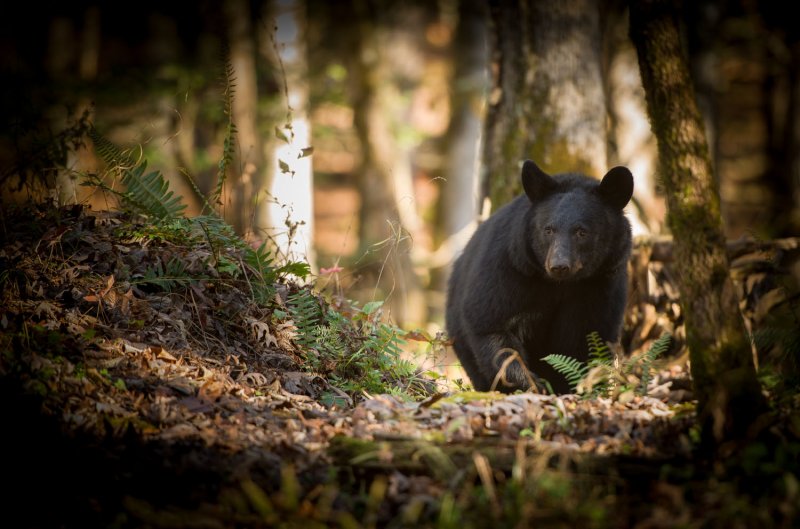Black Bear (Ursus americanus)
Black Bear (Ursus americanus): Get to know Western North Carolina's favorite wild animal
Although these furry creatures are now a common sighting in Western North Carolina, the American chestnut tree blight and overhunting by humans caused the species population to dwindle in the early to mid-1900s. During the 1970s, there were less than 1,000 black bears in our region. Thanks to conservation efforts that began in the ’80s, the bear population in WNC has steadily risen to over 8,000 today.
In the fall, black bears prepare for winter by eating up to 20,000 calories per day in order to bulk up. Since black bears are omnivores, they get their nutrients from insects, acorns, a variety of fruits, fish and other small mammals, and, of course, honey. They can be found denning in hollowed logs, caves, and tree cavities.
Cubs stay with their mother for the first one to two years of their lives. If you spot a lone bear cub (or even a group of bears, known as a sleuth), leave it alone. Although they’re adorable, bears are predators, not pets.
The average wild black bear in North Carolina lives approximately four to five years, but the oldest lived a staggering 26 years. Adult bears can run up to 35 miles per hour and weigh between 300-700 pounds, but the heaviest ever recorded in our region weighed in at 880 pounds.
In Western North Carolina, there are four designated BearWise communities: one in Highlands, two in Asheville, and one in Black Mountain. These areas are committed to reducing conflicts between humans and bears by taking steps to coexist responsibly, including the use of bear-proof trash cans and knowing when to report bear activity. To learn more about bear safety and how to help Western North Carolina’s bear population, visit bearwise.org.
